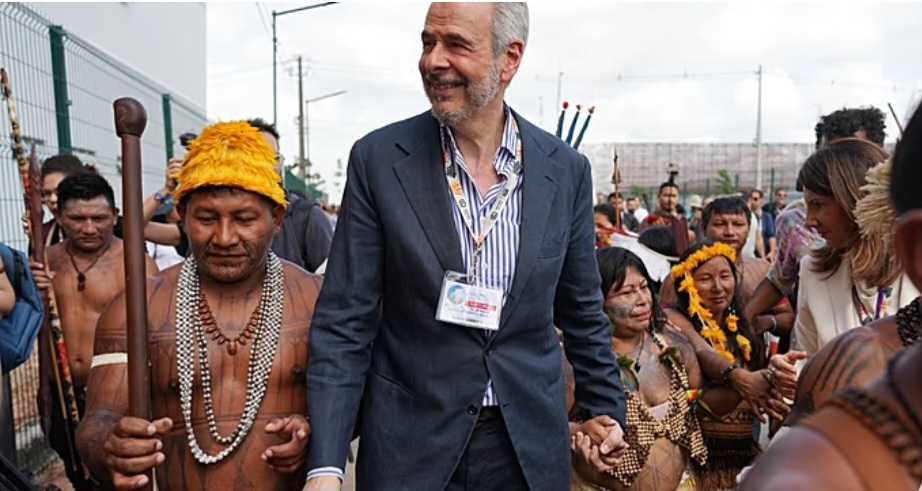
Crystal Dike
About 100 Indigenous protesters on Friday blocked the main entrance to the UN climate conference (COP30) on the edge of the Brazilian Amazon for more than an hour, demanding full participation in negotiations that directly affect their territories.
The peaceful demonstration, which lasted roughly 90 minutes, was monitored by Brazilian soldiers who restricted access to the venue but avoided confrontation. Protesters delivered emotional appeals for inclusion, underscoring what they described as a widening gap between COP30’s rhetoric on Indigenous empowerment and the reality on the ground.
“We’ve been here for days saying the same thing. We want to be heard. We want to sit at the negotiation table too,” said Alessandra Korap, a Munduruku leader from Pará State. Her remarks reflected growing discontent over decisions being made without Indigenous representation at a conference hosted in the Amazon region.
Korap sharply criticised President Luiz Inácio Lula da Silva’s policies, including Decree 12,075 on waterways, accusing the government of favouring oil, mining and other extractive industries at the expense of Indigenous rights. “They congratulate themselves when they approve oil. They applaud when they approve mining,” she said. “We don’t want money in exchange for our land. We want respect.”
The protest came days after violent clashes between security forces and Indigenous groups, adding urgency to calls for stronger protections against resource exploitation.
A tense but symbolic resolution followed when COP30 President André Corrêa do Lago met the demonstrators at the blocked gate. In a striking gesture, he held a protester’s baby during the discussions — a moment that briefly eased tensions as negotiations continued.
After extended dialogue, Corrêa do Lago agreed to allow a group of protesters to enter the venue through a side access point. UN staff rerouted other participants to alternative entrances, while civil society groups formed human chains around the demonstrators to ensure their safety.
The action highlighted the growing frustration of Indigenous communities who say they bear the brunt of climate impacts yet remain sidelined at global forums intended to shape the world’s response.
